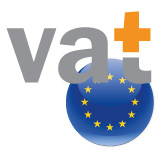amavat | EU VAT Compliance & Savings Guide
Currently there are 28 EU Member States; all are required to act in accordance with the EC Directive, which establishes a simple structure for VAT across the EU, but local tax authorities have some flexibility in several areas, comprising of:
- VAT rates (Standard and Reduced);
- Liabilities for VAT Registration;
- Obligation to account for VAT and the general reverse charge;
- Invoicing procedures;
- VAT reclaim allowances;
- Goods and services excused from VAT;
- Reporting requirements; and
- It is compulsory for international businesses to meet their VAT responsibilities, and make certain they are not being exposed to financial punishments and liabilities. Each of the 28 Member States each have their own VAT legislation to consider, this can be very time consuming and quite confusing for international companies.

Many companies look to find potential savings opportunities and improve their cash-flow, but it is also vital that companies are VAT compliant to avoid the real risks of fines and penalties.
Your VAT compliance responsibilities
For businesses trading in Europe it is vital to make sure that they account for the exact amount of VAT in the correct EU Member State at the right time. If you fail to do so, it might result in financial punishments being incurred and exposure to further VAT costs which will of course directly affect profitability. Also problems can occur with customer relationships if VAT is not accounted for correctly, as businesses will have to spend valuable time determining issues which, with effective management, should not happen.
Opportunities to make VAT savings
VAT regulations need to be considered by international companies to avoid VAT becoming a preventable cost. Many companies can make savings once they become aware of their VAT responsibilities, which means avoiding the payment of VAT that has been mistakenly charged and cannot be recovered, also giving the opportunity to recover VAT that has been charged to your company.
It is important to get your company VAT compliant and recognise any savings opportunities:
1. Evaluate your VAT obligations
It is important when supplying goods or services that you understand if it is you or your customer who should account for the VAT.
Likewise, if you are buying goods or services it is vital to understand where VAT is due and who should account for it. The payment for incorrectly charged European VAT is a large concern for many businesses. Severe cash-flow problems are made needlessly, and you will have no right to recuperate this VAT. As an alternative you might get a credit note from your supplier. Furthermore, you might have a duty to account for VAT using the reverse charge.
2. You should make the correct use of available exemptions and the ‘reverse charge’
If you supply intangible services to customers, in other EU Member States, the ‘reverse charge’ is obligatory and additional reporting requirements apply to the supplier. In order to comply with these extra reporting requirements you have to have your customers VAT number. If you fail to deal with the ‘reverse charge’ correctly, it can lead to tax authority fines and a query from your customer.
The exemption for goods is also obligatory, so long as the relevant proof can be obtained – the supplier MUST have a appropriate VAT number of the customer and proof that the goods were transported. The recent ECJ cases such as ‘Eurotyres’ and ‘Facet’ reinforce the requirement to get this correct.
3. You should review your international VAT Registration profile
When you company is trading internationally, you might need to register for VAT, allowing the reclaim of local VAT sustained through VAT returns. Using the general ‘reverse charge’ can eliminate the requirement for a supplier to be registered for VAT as a non-established trader. Each EU Member State have different rules regarding this and within each Member State can differ for goods or services. This is where amavat® can keep you up to date on how these rules are implemented, thus achieving VAT compliance. De-registrations can also be applied if a business ceased trading in a particular country, thus avoiding the ongoing administrative burden of ongoing VAT reporting costs.
4. Reviewing your international business contracts is important
There are multiple sets of VAT regulations that international business contracts should consider; nevertheless, it is frequently the case that VAT is not taken into account when companies implement contracts with new customers and suppliers. It is conceivable that, by go through contracts, VAT registrations can be avoided and VAT cash-flow enhanced.
5. Your VAT Reporting must be accurate
The VAT Reporting guidelines are different across the EU Member States, and it very important that companies recognise their responsibilities to avoid risks of charges and penalties. In addition to VAT returns, many companies will require to file Intrastat and EC Sales Lists, and it is vital that compliant reports are submitted by the tax authority deadlines.
6. Retrieve your VAT through the EU Refund Directive
Many international companies incur foreign VAT, but many avoid VAT claims because they think it will be too complex or time consuming. If your company has previously overlooked international VAT recovery, it may be easier than expected to claim back the VAT – particularly due to the introduction of the electronic portal in 2010.
7. Make sure Internal ERP systems are compliant
To make sure your international company is VAT compliant, it is vital that VAT coding on ERP systems remains accurate. Modifying business flows and fast changing VAT regulations make this challenging, so it is very important to evaluate your systems to make certain you are up to date.
amavat® provides a one-stop-shop solution for VAT Compliance within Europe. We assist clients with a single point of contact that speaks their language and handles all VAT related issues with a standard and cost efficient approach.
If you have any queries or questions, please do not hesitate to contact amavat®.
To find out more information please visit www.amavat.eu





